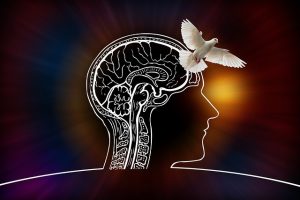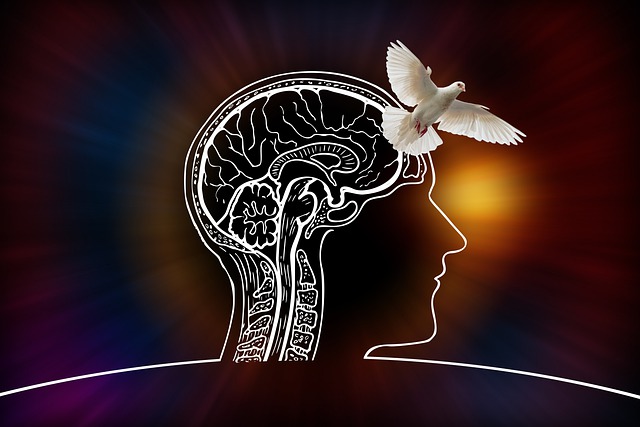Traumatic brain injury (TBI) is both a physical and mental trauma that can have lasting consequences for those affected by it. While much of the research surrounding TBI has focused on the long-term effects, there has been less attention paid to whether or not it is possible to fully recover from such an injury.
This article will explore the causes, effects, and possible treatments of TBI in order to shed light on this important question: Can you fully recover from a traumatic brain injury?
Causes Of Traumatic Brain Injury
 Traumatic brain injuries are caused by a sudden trauma to the head, such as an accident or physical assault. These events can cause an acute injury that can range from mild, like a concussion, to severe, like a skull fracture or bleeding in the brain. TBIs can also be caused by long-term exposure to hazardous chemicals or other environmental factors.
Traumatic brain injuries are caused by a sudden trauma to the head, such as an accident or physical assault. These events can cause an acute injury that can range from mild, like a concussion, to severe, like a skull fracture or bleeding in the brain. TBIs can also be caused by long-term exposure to hazardous chemicals or other environmental factors.
Symptoms of TBI vary depending on the severity and location of the injury. Common symptoms include difficulty thinking clearly, confusion, memory loss, headaches, loss of coordination and balance, dizziness, nausea and vomiting. More serious cases may result in changes in behavior or personality, seizures and coma. It is important to seek medical attention immediately if you suspect you have suffered a TBI.
Early diagnosis and treatment can improve outcomes and help ensure a full recovery from a traumatic brain injury.
Symptoms Of Tbi
The impact of a traumatic brain injury can be devastating, leaving both physical and emotional scars that may never fully heal. The severity of the symptoms can vary greatly depending on the extent of the injury, but some common signs to look out for include confusion, dizziness, headaches, slurred speech, nausea and vomiting. In more severe cases, TBIs can also cause seizures or auditory and visual disturbances.
Unfortunately, recovery from a TBI is often slow and incomplete; even after receiving medical care and rehabilitation therapy, an individual may still suffer from long-term physical or cognitive deficits. Despite this, it is important to remember that with proper management and support, it is possible for survivors of TBIs to achieve a good quality of life. With patience and perseverance, those who have experienced a traumatic brain injury can learn to adapt to their new reality and find ways to achieve their goals.
Diagnosis And Treatment Of Tbi
When diagnosing a traumatic brain injury, doctors will use several tests including CT scans and MRIs to determine the severity of the injury. Depending on the diagnosis, they may also perform neurological exams, balance assessments, and cognitive tests. After diagnosis, treatment depends on the type of TBI and its severity. Mild cases may require rest and over-the-counter medications to reduce pain or swelling. More serious cases may require physical therapy, occupational therapy, speech therapy, and even surgery to repair any damaged tissue or bone fragments. Additionally, psychological counseling may be needed to help individuals cope with their symptoms. Recovery can take a long time depending on how serious the injury is, but most people are able to make some level of recovery with proper treatment and rehabilitation.
Long-Term Effects Of Tbi
Traumatic brain injury can have long-term, life-altering effects. Depending on the severity of the injury, a person may experience physical, cognitive, and emotional difficulties that can last for months or even years. Physical symptoms may include problems with balance and coordination, as well as changes in vision or hearing. Cognitive issues can include difficulty with concentration or memory loss. Emotional difficulties such as depression, anxiety, and mood swings are also common in people who have suffered from a traumatic brain injury.
Rehabilitation is key to helping those affected by TBI manage their symptoms and live a more normal life. Treatment typically involves physical therapy and cognitive rehabilitation to help improve coordination and thinking skills. Medication can also be used to help manage physical pain, as well as emotional distress. With the right care and support, many people with TBI are able to lead productive lives despite their condition.
Ways To Maximize Recovery From Tbi
The road to recovery from a traumatic brain injury can be long and challenging. For those who have suffered a TBI, the journey is often filled with uncertainty and fear. Fortunately, there are steps that can be taken to maximize the chance of recovery. The first step is to find medical professionals who specialize in TBIs. A team of qualified specialists should include a neurologist, surgeon, physical therapist, occupational therapist and speech pathologist. With the help of these experts, people with TBIs can receive personalized treatment plans that are tailored to their individual needs. Additionally, family members or caregivers can provide support throughout the recovery process by offering encouragement and assistance with daily tasks. Finally, those recovering from a TBI should take time for themselves when needed, engaging in activities such as yoga or mindfulness meditation which can help reduce stress and anxiety levels. Through a combination of expert medical advice and self-care strategies, individuals affected by TBIs can maximize their potential for full recovery.
Is There Any Way To Prevent A Traumatic Brain Injury?
Traumatic brain injuries are serious and can have long-term consequences, so it’s important to do what you can to prevent them. Wearing a helmet when riding a bicycle, snowboarding or skateboarding, or participating in any contact sport is one of the best ways to protect yourself from a traumatic brain injury. Additionally, making sure your car has working airbags and that they are properly maintained may also help reduce your risk of such an injury. Taking these precautions can help you stay safe and avoid a traumatic brain injury.
How Long Does Recovery From A Traumatic Brain Injury Take?
The length of recovery from a traumatic brain injury (TBI) can vary greatly, depending on the severity and type of injury. It can take anywhere from several weeks to several years for an individual to recover fully. The most important factor in determining the length of recovery is the extent of damage caused by the TBI. Generally speaking, milder injuries may take only a few days or weeks to recover from, while more severe injuries may take months or even years. Additionally, individuals may also need ongoing rehabilitation and therapy to help them reach their maximum potential after suffering a TBI.
Are There Any Medications That Can Help With Recovery From A Traumatic Brain Injury?
There are a variety of medications that can help with recovery from a traumatic brain injury. These medications can help reduce inflammation and swelling, improve cognitive functioning, and reduce the risk of further injury. Depending on the type of traumatic brain injury, doctors may prescribe different types of medications such as anti-seizure drugs, anti-anxiety medications, or muscle relaxants. Additionally, certain vitamins and supplements may also be recommended to support overall recovery.
Are There Any Lifestyle Changes That Can Help With Recovery From A Traumatic Brain Injury?
Yes, there are lifestyle changes that can help with recovery from a traumatic brain injury. It’s important to follow the advice of your healthcare team in order to maximize your recovery. Getting plenty of rest and seeking out social support can help reduce stress and speed up the healing process. Eating a healthy diet, avoiding alcohol and drugs, exercising regularly and engaging in cognitive activities such as reading or puzzles can also help improve cognitive function. Additionally, engaging in relaxation techniques like meditation or yoga may reduce anxiety levels, helping promote healing.
What Type Of Support Is Available To People Who Have Suffered From A Traumatic Brain Injury?
For those who have suffered from a traumatic brain injury, there is a range of support available to help with recovery. This can include physical therapy, cognitive rehabilitation, and counseling to assist with psychological and emotional needs. In addition, many local organizations provide support groups for individuals and families affected by traumatic brain injuries. It is important to seek out the resources that best fit your individual needs in order to make the most of your recovery journey.
Recovering from a traumatic brain injury can be an incredibly difficult, and often long process. However, with the right medication, lifestyle changes and support, it’s possible to make progress and have a better quality of life. Everyone’s recovery journey is different, but knowing that help is available can provide hope. I encourage anyone who has suffered from a TBI to reach out for support and explore the various treatment options that may help them in their recovery. With dedication and perseverance, you can get back on track and live your best life.









